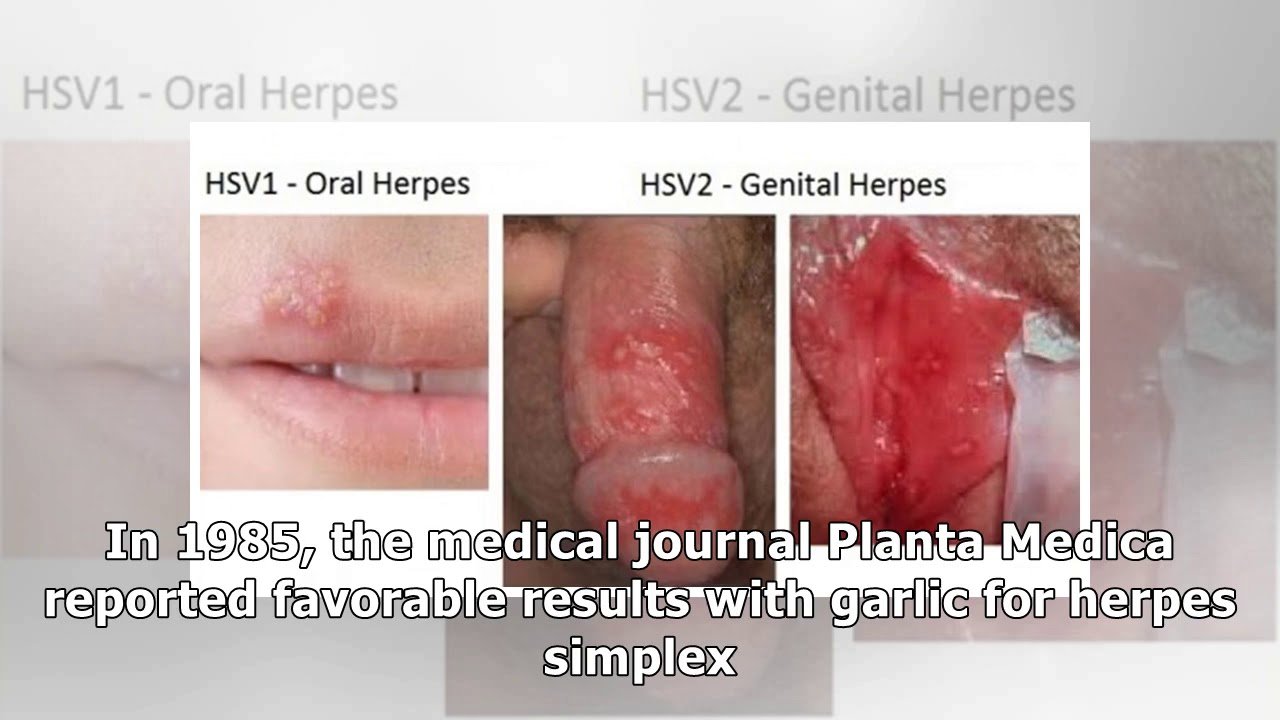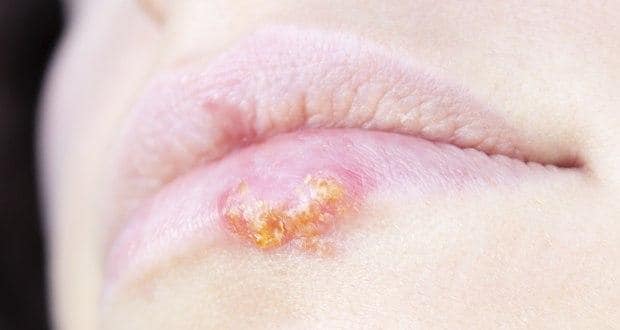Herpes Encephalitis And Meningitis
Herpes Encephalitis
Herpes simplex encephalitis is inflammation of the brain caused by either HSV-1 or HSV-2. It is a rare but extremely serious brain disease. Untreated, herpes encephalitis is fatal most of the time. Respiratory arrest can occur within the first 24 to 72 hours. Fortunately, rapid diagnostic tests and treatment with acyclovir have significantly improved survival rates and reduced complication rates. Nearly all who recover have some impairment, ranging from very mild neurological changes to paralysis.
Herpes Meningitis
Herpes simplex meningitis is inflammation of the membranes that line the brain and spinal cord. It is mainly caused by HSV-2. Like encephalitis, meningitis symptoms include headache, fever, stiff neck, vomiting, and sensitivity to light. Fortunately, herpes meningitis usually resolves after about a week without complications, although symptoms can recur.
If A Pregnant Woman Gets Genital Herpes Is There A Chance Her Baby Can Get Infected
Yes. Even though adults with genital herpes may not have any symptoms, herpes infections in babies can be life-threatening. Women who get genital herpes during late pregnancy have a very high risk for having a baby with herpes infection, and these women may not even know they are infected. Women who get herpes during early pregnancy, or who are infected before they get pregnant can also spread herpes to their babies. Most babies with herpes get infected as they come into contact with the herpes virus while passing through the birth canal, but infection can also occur before birth or in the weeks after birth.
If you are pregnant and think that you or your partner may have genital herpes, tell your doctor. Your doctor can order testing and can talk to you about ways to lower your babys risk for infection.
What Is Herpes Simplex
Herpes simplex is a virus that causes skin infections. The infection lasts your lifetime, and it causes painful or itchy sores and blisters that come and go. Herpes simplex virus typically doesnt cause severe problems. But it can be dangerous in infants and people with weakened immune systems. There are two types of herpes simplex:
- Herpes simplex 1 tends to affect your mouth or face. It causes cold sores. HSV-1 spreads through contact with saliva .
- Herpes simplex 2 is a sexually transmitted disease . It causes sores on skin that comes in contact with the genitals of an infected person.
Sometimes a herpes infection can affect other parts of your body, such as your eyes or other parts of your skin.
You May Like: Can You Get Herpes Simplex 1 In Genital Area
What You Need To Know
- Fifty percent to 80 percent of U.S. adults have oral herpes.
- Oral herpes can be spread through intimate contact with someone who is infected.
- Oral herpes can be difficult to diagnose. Often confused with many other infections, it can only be confirmed with a virus culture called PCR, blood test or biopsy. PCR is the preferred test for diagnosing herpes infections.
- The best treatment for oral herpes is antiviral oral medication. Symptomatic treatment may include antiviral ointment, over-the-counter topical anesthetics or over-the-counter anti-inflammatory agents.
Whether you call it a cold sore or a fever blister, oral herpes is a common infection of the mouth area that is caused by herpes simplex virus type 1 . Fifty percent to 80 percent of U.S. adults have oral herpes. According to the National Institutes of Health, about 90 percent of adults have been exposed to the virus by age 50.
Once infected, a person will have herpes simplex virus for the rest of his or her life. When inactive, the virus lies dormant in a group of nerve cells. While some people never develop any symptoms from the virus, others will have periodic outbreaks of infections.
When Should You Call Your Doctor

If you havenât been diagnosed with genital herpes, call your doctor if you have:
- Painful blisters or sores in the genital or pelvic area.
- Burning or pain while urinating, or you canât urinate.
- Reason to think youâve been exposed to genital herpes.
If you have been diagnosed with genital herpes, call your doctor if you are having frequent outbreaks or if you canât pass urine or are constipated.
If you are pregnant and have genital herpes, or if you think you have genital herpes, tell your doctor.
Recommended Reading: How To Keep Herpes From Coming Back
You May Like: What Not To Eat When You Have Herpes
How Often Do Outbreaks Occur
The number of outbreaks someone has varies from person to person. The average number of outbreaks for a person with genital HSV-2 is four to five per year. The average for genital HSV-1 is less than one outbreak per year.
Usually, there are more outbreaks during the first year, and many people find that outbreaks become less severe and less frequent with time.
Herpes triggers are highly individual, but with time, many people learn to recognize, and sometimes avoid, factors that seem to reactivate HSV in their own bodies. Illness, poor diet, emotional or physical stress, friction in the genital area, prolonged exposure to ultraviolet light , surgical trauma, and steroidal medication may trigger a herpes outbreak.
The frequency of outbreaks can often be managed through effective stress management, and getting adequate rest, nutrition, and exercise. For people with frequent outbreaks, suppressive therapy with any one of the antiviral treatments can reduce outbreaks by as much as 80%.
How Do People Get Genital Herpes
Infections are transmitted through contact with HSV in herpes lesions, mucosal surfaces, genital secretions, or oral secretions. 5 HSV-1 and HSV-2 can be shed from normal-appearing oral or genital mucosa or skin. 7,8 Generally, a person can only get HSV-2 infection during genital contact with someone who has a genital HSV-2 infection. However, receiving oral sex from a person with an oral HSV-1 infection can result in getting a genital HSV-1 infection. 4 Transmission commonly occurs from contact with an infected partner who does not have visible lesions and who may not know that he or she is infected. 7 In persons with asymptomatic HSV-2 infections, genital HSV shedding occurs on 10.2% of days, compared to 20.1% of days among those with symptomatic infections. 8
You May Like: How To Heal Genital Herpes
Can A Herpes Outbreak Last Months Why Does My Herpes Never Go Away
Typically, herpes outbreak are resolved in 2 to 3 weeks, though sores may take up to 4 weeks to heal. In severe cases, such as for those who are immunocompromised, herpes may take months to completely disappear. It is important to not that herpes never truly goes away, as the virus remain dormant in your body even when outbreaks are not present.
Dont Miss: What Causes Genital Herpes Breakouts
When To See A Healthcare Provider
If you’ve been diagnosed with herpes, there are some circumstances where you may benefit from medical care. These may include having:
- An outbreak that isn’t helped by treatment and self-care strategies
Self-care strategies during outbreaks can help with pain and discomfort, including:
- Keeping the affected area clean and dry
- Using over-the-counter pain relievers
- Place cold compresses over affected areas
For at-home care for cold sores specifically:
- Apply non-prescription antiviral ointment
- Avoid eating spicy, acidic, or salty foods
- Use petroleum jelly to keep surrounding skin moisturized
Also Check: Natural Medicine For Genital Herpes
How Is Herpes Simplex Diagnosed
Healthcare providers may diagnose herpes simplex based on how the sores look. Your provider may take a sample from the sore. Laboratory analysis of the sample can confirm or rule out the herpes virus.
If you dont have sores, your healthcare provider can use a blood test to check for HSV-1 and HSV-2 antibody, a marker showing youve been exposed to the virus. The blood test doesnt show an active infection . But it informs your provider whether youve been exposed to the herpes virus in the past. If this is your first infection, you may not test positive for herpes if there hasnt been enough time for your body to develop antibodies. The HSV-1and HSV-2 antibody test may be repeated in eight to 12 weeks.
What Should I Do If I Have Genital Herpes
If you have genital herpes:
- See a doctor or nurse as soon as possible for testing and treatment.
- Take all of the medicine. Even if symptoms go away, you need to finish all of the antiviral medicine.
- Tell your sex partner so they can be tested and treated if necessary.
- Avoid any sexual contact while you are being treated for genital herpes or while you have an outbreak.
- Remember that genital herpes is a lifelong disease. Even though you may not have a genital herpes outbreak for long periods of time, you can still pass the virus to another person at any time. Talk with your doctor or nurse about how to prevent passing the virus to another person.
Also Check: How Quickly Do Herpes Sores Appear
How Can I Best Learn To Cope With Herpes Simplex
Some people feel distressed or embarrassed about their herpes simplex infection. Its important to understand that the herpes virus is common. For most people, herpes doesnt significantly interfere with daily life.
To cope with negative feelings, you may consider:
- Connecting with others through support groups or online forums.
- Sharing your feelings with a trusted friend or loved one.
- Speaking with a therapist.
What’s Involved In Herpes Testing

If there are blisters or sores, a healthcare provider may gently swab the area to take a fluid sample and test it. If there are no sores, but you are concerned you may have been exposed, a blood test may done. Herpes tests are not normally recommended unless you have symptoms.
Recommended Reading: Why Do Herpes Itch So Bad
Frequently Asked Questionsexpand All
People with HSV-2 infection have an increased risk of getting human immunodeficiency virus if they have sex with an HIV-infected partner. Taking suppressive therapy does not decrease this risk.
If a woman is pregnant and infected with HSV, it can be passed to the fetus during birth while passing through the womans infected birth canal. This is most likely to occur if a woman first becomes infected with HSV during pregnancy and in a woman who has her first outbreak late in pregnancy. But it also can occur during a recurrent outbreak in a woman who was infected before pregnancy, although the risk is much lower.
If you have sores or warning signs of an outbreak at the time of delivery, you may need to have a cesarean delivery to reduce chance of infection. The decision depends on many factors, including where the sores are on your body and whether the fetus would come into contact with them during delivery.
Yes, in most cases. The herpes virus cannot be passed to a baby through breast milk. However, the baby could get infected by touching a sore on your body. Make sure any sores that the baby could come into contact with are covered when you hold your baby or while breastfeeding. Wash your hands with soap and water before and after feeding your baby. If you have sores on your breast, you should not breastfeed your baby from that breast.
Article continues below
Cycle And Duration Of A Herpes Outbreak
When an individual is first infected with herpes and exhibit active symptoms, the duration of the primary outbreak will be the worst and most painful and can take 3 to 6 weeks to resolve. Subsequent recurrent outbreaks will be less severe, typically lasting 3 to 14 days and the frequency will become farther and farther apart with each recurring attack.
A typical cycle and duration of a herpes outbreak may look like the following:
Don’t Miss: How To Prevent Herpes Blisters From Bursting
How Can I Protect My Sex Partners
You can take steps to protect others from herpes. Keep in mind that you can spread it even when you dont have symptoms.
Avoid sex during outbreaks: Youre more likely to give your partner herpes while you have an outbreak. Avoid sexual contact from the time you notice the first signs, such as tingling or pain, until the scabs fall off and your skin is back to normal.
Try not to touch your sores: If you do, wash your hands right away. A good cleaning may stop the spread to another part of your body or to your partner.
Use condoms: They wont totally protect your partner, but they can lower the chances of spreading the virus.
Talk to your doctor: They might prescribe a drug to make it less likely youll give herpes to someone else. As with condoms, the medicine wont 100% protect your partner.
What Are The Symptoms Of Herpes Ii
Typically, the first signs of herpes II is a cluster of blister-like lesions in the genital area which spread and merge, break and crust over within four to 15 days. The fluid from these itching, painful sores is highly infectious. Other frequent symptoms are painful urination, urethral or vaginal discharge and swollen lymph nodes. The first exposure or primary episode consists of headache, fever, chills and muscular weakness. Recurrent episodes are less severe and are limited to the affected area.
Recommended Reading: How To Protect My Partner From Herpes
How Long Before The First Outbreak
If someone has contracted HSV but not yet experienced a herpes outbreak, truthfully theres no 100% accurate way to determine when one will occur. An outbreak can occur within a week of exposure, or years later.
First, consider that everyones body is different, as is their immune system. If a person has a strong immune system, then it can be possible for an outbreak to occur years after contracting the virus.
Whats more, some strains of HSV are more forceful and aggravating than others.
There is what is considered typical, and that is that people often have their first outbreak two weeks after contracting it. But this just isnt reliable, because its equally accepted that people can often have outbreaks after two years.
Thats why so many people will have trouble pinpointing when they got herpes at all. There are varied statistics and possibilities:
Stress is a common trigger for an outbreak.
Can I Get Genital Herpes More Than Once
There isnt a cure for HSV-2, the virus that causes genital herpes. Infections can come back . Recurring symptoms are usually milder than the first outbreak. Symptoms dont last as long with later outbreaks. Some people may only have one or two outbreaks during their lifetime. Others may have as many as four or five outbreaks a year.
After infection, the virus moves from skin cells to nerve cells. In the nerve cells, it becomes inactive . Certain things may reactivate the virus, such as:
- Illness or fever.
Read Also: How To Pass On Herpes
Recommended Reading: Will Valtrex Prevent Herpes Outbreaks
Valacyclovir For Recurrent Herpes Outbreaks
Herpes can remain dormant in the body for weeks, months or years in between outbreaks. On average, people with HSV-1 experience about one outbreak per year, while people with HSV-2 will usually experience four to five outbreaks per year.
When these outbreaks occur, valacyclovir can provide fast and effective relief, helping to control herpes outbreak symptoms.
The typical valacyclovir dosage for recurrent herpes outbreaks is 500 mg two times per day over a period of three days. Like with first-time herpes outbreaks, valacyclovir is most effective when its taken as soon as you notice a herpes outbreak developing.
When taken as soon as you notice a herpes outbreak, valacyclovir can provide relief in as little as two to three days, minimizing symptoms and reducing the risk of you passing genital herpes to sexual partners.
Herpes Average Incubation Period

Both HSV-1 and HSV-2 cause painful sores and blisters that present in five stages:
- Stage 1:About 1-2 days before the cold sore or blister appears, tingling, itching, burning, or numbing sensation starts where the outbreak will occur.
- Stage 2:One or more painful sores appear, typically around the mouth or the genitals.
- Stage 3:Several days later, the sores burst, which allows the fluid inside to escape. This fluid can easily transmit the virus to othersthis is a highly contagious time.
- Stage 4: A crust forms, covering the sores as they dry out.
- Stage 5:A scab forms over the crust, and eventually flakes off once the sore is fully healed.
From start to finish, a herpes simplex sore outbreak typically lasts 1-2 weeks.
You May Like: How Can You Tell If You Got Herpes